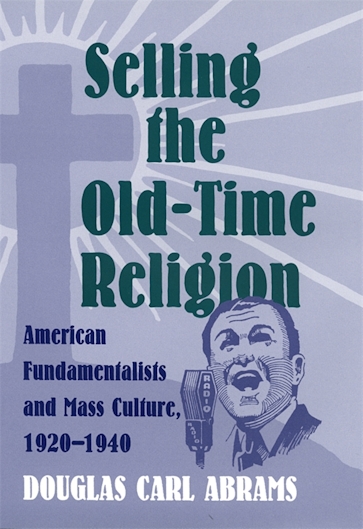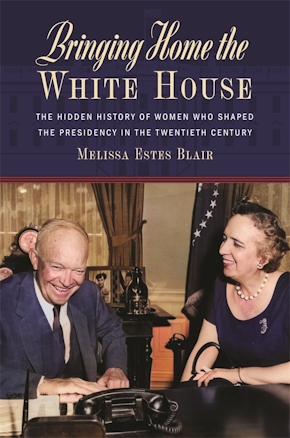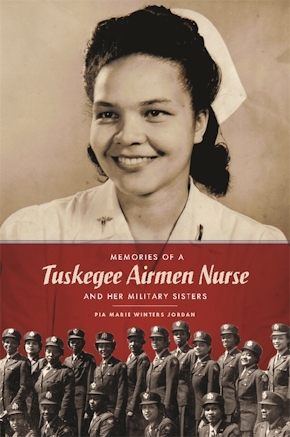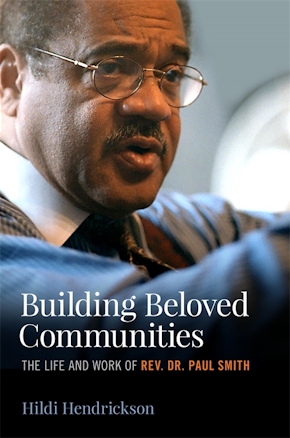Selling the Old-Time Religion
American Fundamentalists and Mass Culture, 1920-1940
Title Details
Pages: 184
Trim size: 6.000in x 9.000in
Formats
Hardcover
Pub Date: 09/20/2001
ISBN: 9-780-8203-2294-0
List Price: $44.95
Selling the Old-Time Religion
American Fundamentalists and Mass Culture, 1920-1940
Skip to
- Description
- Reviews
The relationship between Protestant fundamentalists and mass culture is often considered complex and ambiguous. Selling the Old-Time Religion examines this relationship and shows how the first generation of fundamentalists embraced the modern business and entertainment techniques of marketing, advertising, drama, film, radio, and publishing to spread the gospel. Selectively, and with more sophistication than has been accorded to them, fundamentalists adapted to the consumer society and popular culture with the accompanying values of materialism and immediate gratification, despite the seeming conflict between these values and certain tenets of their religious beliefs.
Selling the Old-Time Religion is written by a fundamentalist who is based at the country's foremost fundamentalist institute of higher education. It is a candid and remarkable piece of scholarship that reveals from the inside the movement's first encounters with some of the media methods it now wields with well-documented virtuosity.
Carl Abrams draws extensively on sermons, popular journals, and educational archives to reveal the attitudes and actions of the fundamental leadership and the laity. Abrams discusses how fundamentalists' outlook toward contemporary trends and events shifted from aloofness to engagement as they moved inward from the margins of American culture and began to weigh in on the day's issues—from jazz to "flappers"—in large numbers.
Fundamentalists in the 1920s and 1930s "were willing to compromise certain traditions that defined the movement, such as premillennialism, holiness, and defense of the faith," Abrams concludes, "but their flexibility with forms of consumption and pleasure strengthened their evangelistic emphasis, perhaps the movement's core." Contrary to the myth of fundamentalism's demise after the Scopes Trial, the movement's uses of mass culture help explain their success in the decades following it. In the end fundamentalists imitated mass culture not to be like the world but to evangelize it.
In writing this volume, Abrams has put together a valuable, concise study that explores a key dimension of a formative period in the history of conservative American Protestantism.
—North Carolina Historical Review
In succinct, well-documented chapters, Abrams traces what Jackson Lears has called the ‘complex blend of accommodation and protest’ that fundamentalists manifested in the interwar decades.
—Journal of Southern History
[A] well-written, candid, and even-handed scholarly work. It gives us a nuanced analysis of the ways that Christian fundamentalists influenced—and were influenced by—the entertainment industries, popular culture, and the entrepreneurial spirit. . . . Selling the Old-Time Religion is a wonderful contribution to the scholarly literature on twentieth-century Protestantism.
—Religious Studies Review
Abrams’ work is a significant accomplishment in the field of American religious history. He has shed much light on the interesting relationship of fundamentalism and modernity. In addition, his work offers a great deal of insight on how popular culture informed conservative religion in America.
—H-Net Reviews
The data and conclusions Abrams presents in this book are intriguing, and if some of them are already familiar to those who have read other recent studies of American Protestant fundamentalism, his focus nonetheless synthesizes the material in an illuminating way. . . . [Abrams] knows his material from the inside but writes with appropriate scholarly detachment.
—Dewey D. Wallace Jr., American Studies International
This book makes for lively and informative reading. Abrams captures the ambivalence with which fundamentalists approached American culture between the world wars. . . . Abrams has succeeded remarkably well in explaining this complex and formative era in American Fundamentalism.
—American Historical Review
Selling the Old-Time Religion is a welcome addition to the scholarship on American fundamentalism. Its readers will gain understanding of a movement too often misunderstood as backward and monolithic.
—American Studies
Selling the Old-Time Religion makes a very useful contribution to the growing body of scholarship that considers the relation between business and religion in modern America.
—Business History Review



